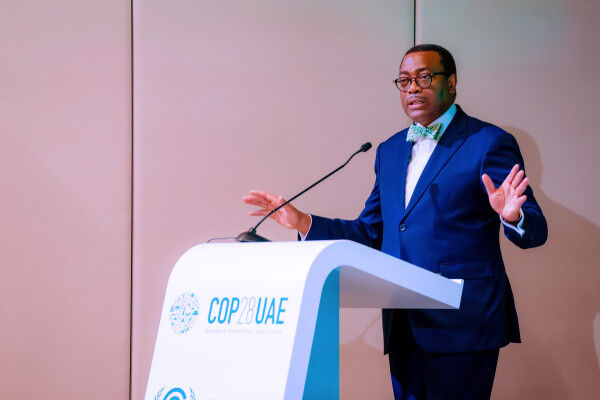
.African negotiators demand continent’s priorities, concessional funding
As countries and orgnisers seal COP28 climate deal in Dubai, United Arab Emirates (UAE), a renowned environmentalist, Dr Newton Jibunoh, has urged Nigerians to ask delegates for gains of the outing.
Jibunoh said: “Let’s interview them every time they come back about what they went there for, whether to go and shop or attend meetings? And if they did indeed attend meetings, what did they get from there; what are they bringing back home?”
While pointing out that this would not be the first time the country attended conferences with large number of delegates, having witnessed the same during the first conference in Brazil, the Desert Warrior, as he is popularly called because of his efforts against desert encroachment in Africa, said probably Nigerians should ask the delegates what they went to Dubai for.
He decried taking such unwieldy number of delegates to conferences, which he said is a waste of public resources.
“It had been going on like that for a very long time. Nigeria was always coming up with one of the largest delegations right from the beginning. But when you attend sessions, you hardly see them.
“I went in the past, mostly on my own. At one session, one ambassador pleaded with me to take a seat in his country’s area, because there were hardly people seated there.
“For example, you will see few delegates from Niger Republic, who are usually seated next to us, attend sessions, and engage in discussions, but you ask yourself, where are our delegates; where did they go? Because there were nowhere to be found.”
Many had hoped the world would commit to phasing out coal, oil and gas for the first time, but wording on this was unexpectedly dropped, with a COP28 chief saying the latest proposal was a “starting point” and they had spent the night getting “feedback” on how to reach a widely acceptable deal.
All 198 countries must agree for there to be a deal.
Meanwhile, the Africa Group of Negotiators have called on COP28 to deliver a fair and balanced assessment that catalyses greater ambition across all elements of climate action in Africa, centred on equity for a just transition.
Among the priorities they outlined were calls for an adaptation framework with ambitious time-bound targets and clear support for implementation, as well as significant concessional funding towards a just transition.
The group further indicated that Africa nations should have the opportunity to explore all its resources, including fossil fuels, a situation which would undermine climate goals and the calls for an equitable fossil fuel phase out.
“The just transition and resilient low‐carbon development, if not properly designed, risks widening the developmental gap between Africa and the rest of the world,” said Chair of African Group of Negotiators on Climate Change (AGN), Collins Nzovu, in a statement read on his behalf by Chief of Climate Change Section at the Technology, Climate Change & Natural Resource Management Division at the United Nations Economic Commission for Africa (ECA), James Murombedzi.
Nzovu noted that even though COP28 has come to an end and decisions have to be made, concerns have been observed about the lack of progress on various issues of importance to the group, particularly on finance and adaptation.
On just transition, he said Africa needs its own narrative that includes survival and not just agriculture. Transition to low carbon transition is inevitable.
AGN emphasised the UN Secretary-General, António Guterres’ call: “Lives and livelihoods are being lost and destroyed, with the vulnerable suffering the most. We are in an adaptation emergency. We must act like it. And take steps to close the adaptation gap, now.”






